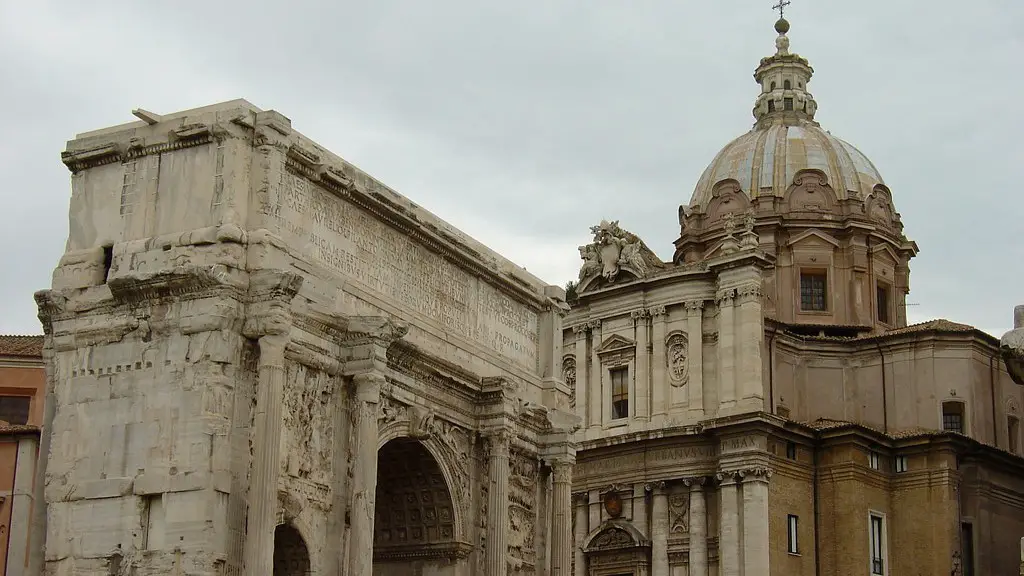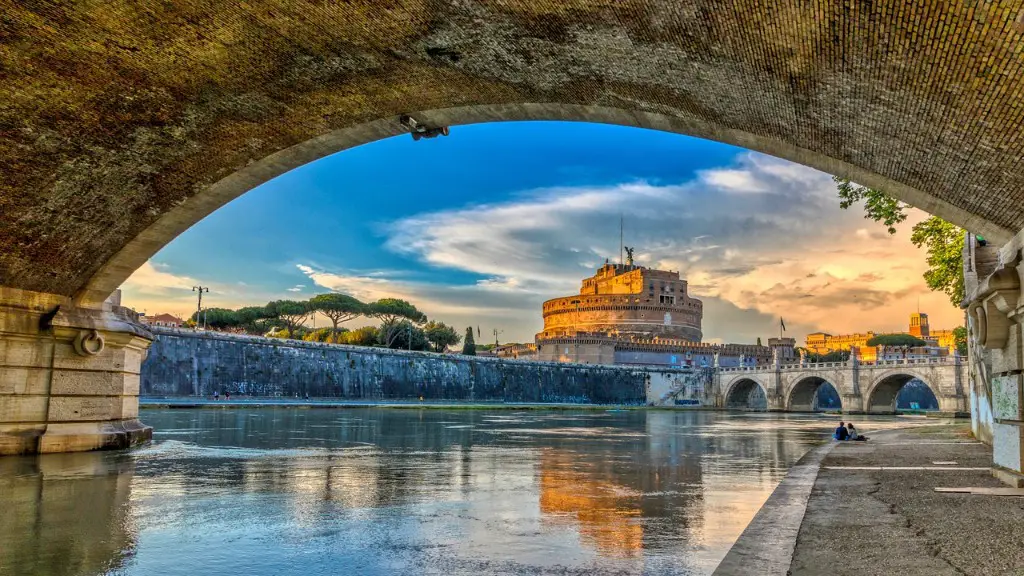Agriculture
The ancient Romans were a highly advanced society that developed a variety of groundbreaking inventions. One of the most important and influential inventions of the Roman era was their agricultural technology. Romans were the first civilisation to introduce the use of detailed crop rotation to maximise yields, pump-driven irrigation systems, animal systems and fertilisation to optimise production. Romans built over 200 aqueducts to bring water to their cities, estates, and agricultural land. It enabled the Romans to cultivate and grow crops regardless of current weather conditions. Additionally, the Roman Empire was the first to develop near-industrial scale factories for producing ceramic ware, terracotta drain pipes and other things.
Architecture
The ancient Romans were also pioneers in architecture. Their arches, domes and vaulting, constructed with concrete, are still used today. The Pantheon was the first of its kind, with its dome constructed from concrete, giving it a sturdy and stable structure. Roman architecture included intricate designs using columns as well as domes that were revolutionary in terms of their aesthetics. Romans also developed the idea of constructing high and wide archways which allowed civilians to enter a new space all at once and to move quickly between different areas, reducing congestion and increasing efficiency. Additionally, the Romans developed the use of cement to adhere stones, which made structures secure and durable.
Roads
The ancient Romans is also credited with developing one of the earliest forms of transportation. The Roman government constructed an impressive system of roads to provide safe and efficient routes for travellers and merchants alike. Roman roads were made of gravel, paving stones and other durable materials. Furthermore, the roads were well maintained, giving them a flat and even surface. This allowed for faster travel speeds and increased safety. Additionally, the Roman roads featured milestones indicating distances and directions, which provided essential information for travellers.
Education
The ancient Romans developed a comprehensive education system which was one of their most important contributions. It was the first to separate elementary school education from advanced education and created an organised structure for curricula. Roman education was mainly dominated by rhetoric, which was the primary way of learning in schools. Rhetoric was an art of public speaking which the Romans believed was essential for a successful society. The education system was further improved with the introduction of reading, writing and subjects such as maths, science and philosophy. This paved the way for students to explore diverse topics and to gain valuable knowledge.
Law System
The ancient Romans developed a sophisticated and complex legal system that is still in use today. Previously, early Roman laws were unwritten and were passed down orally, however the Roman Empire saw drastic changes in management of the legal system. Roman law was later written down in the Justinian Code and became the foundation for the West’s legal systems. This code covered almost all aspects of law, such as civil and criminal law and was an extensive improvement to the laws of that time. This allowed the Romans to have a clear and unified legal system throughout their vast empire.
Currency
The ancient Romans created their own coin currency, which advanced the system of commerce throughout the Roman Empire. The coinage of the time was mostly made up of iron, silver and bronze and was used as legal tender in markets and towns. The coins were marked with emblems representing the Roman gods and goddesses and their values. The fractional coins allowed for small transactions that would not have been possible with whole coins. Furthermore, the coins were regulated and controlled by Roman authorities, which eliminated the threat of counterfeiting or inflation.
Entertainment
The ancient Romans also developed innovative forms of entertainment. Spectators were enthralled by the chariot races and gladiatorial games at the Colosseum. Romans developed the idea of using large arenas for performances and sporting events. This was revolutionary for the time as it was an effective way for the government to engage with the citizens of Rome. Additionally, the ancient Romans created musical instruments, such as the lute, lyre and harp to accompany their songs.
Medicine
The ancient Romans had a more advanced understanding of medicine compared to their predecessors. At the time, most medical treatments were merely folk-based treatments, such as herbal remedies and spiritual rituals. However, Romans began to document diseases and develop new treatments. The Romans also established public baths, which provided a place for people to wash and treat skin diseases. Roman doctors are credited with inventing innovative surgical instruments. Furthermore, they wrote the first comprehensive books on medicine which contained information about treatments, diagnoses and the anatomy of the human body.
Engineering
The ancient Romans were masters of engineering and infrastructure. They were able to construct large monuments, such as aqueducts, bridges, dams and roads. Amazingly, some of these monuments still exist today and testify to the technological advancements the Romans achieved. Roman engineering can be seen in the grand bridges and roads, which were developed to allow for supplies and people to be safely transported over long distances. Additionally, Romans developed innovative and resilient concrete, which increased the structural integrity of their buildings.
Armies
Interestingly, the ancient Romans invented new military tactics and strategies, revolutionising the way in which wars were fought. The Romans developed a very sophisticated way of organizing their armies and developed a system of rules and regulations that gave the soldiers a greater sense of discipline. Furthermore, Romans developed a number of innovative devices and tools to help them in their conquest. For example, they used a devastating weapon known as the ballista, which was used to launch stones and other projectiles over long distances. Additionally, the Romans developed superior siege weapons, such as battering rams and catapults, to break through their enemies’ fortifications.
Religion
The ancient Romans also pioneered religious practices and beliefs. Their polytheistic religion included a variety of gods and goddesses, who represented different aspects of life. They believed in a cosmic order and in worshipping the gods to receive their favour. Furthermore, Romans were the first to worship certain Roman heroes as divine figures. This increased the bond between citizens, as everyone shared the same religion. Additionally, the Romans developed elaborate ceremonies and rituals in honour of their gods and goddesses. This allowed for people to gain a sense of connection with their Roman gods.


